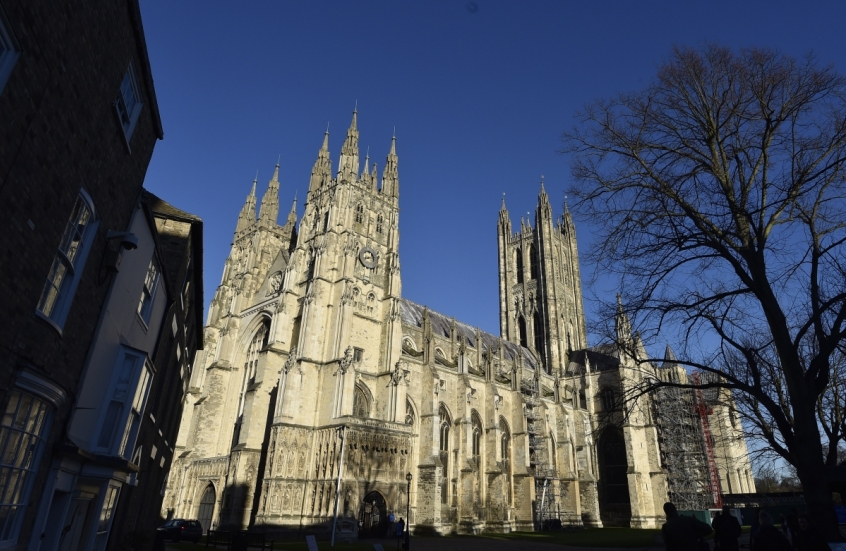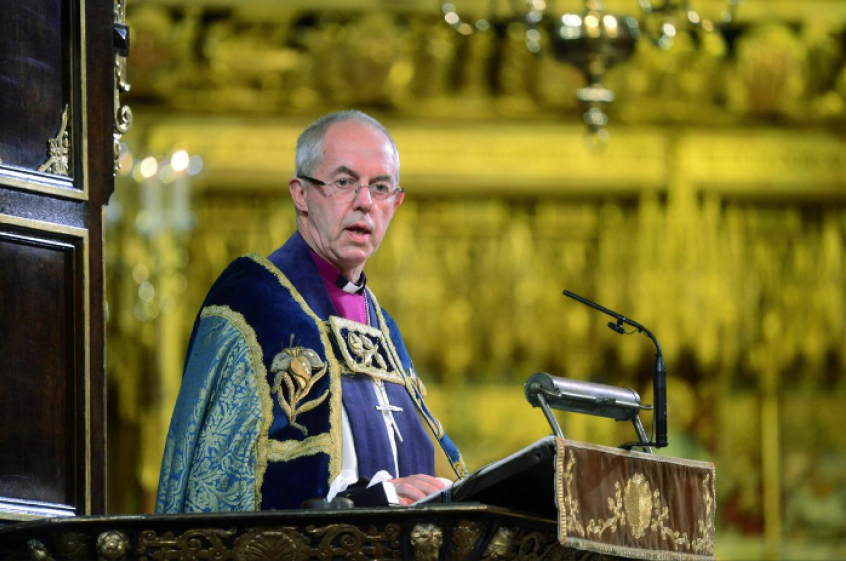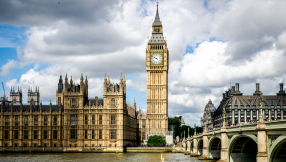The United Methodist Church not unexpectedly, shipwrecked itself this week on the rock of same-sex marriage. Simmering disagreements in the denomination – a global church of 12.7 million, though 7 million of these are in the US – came to a head on Tuesday amid fierce battles between conservatives and progressives. It all seems rather unsavoury: progressives launched a succession of amendments aimed at talking out the process before the Conference had to close to make way for a monster truck rally. The filibuster failed, the conservatives won, and progressives are taking to the lifeboats: one analyst suggests nearly 2 million members will leave over the issue.

British Methodists – facing the same issue at this year's Conference and already looking into the membership abyss – will look on with trepidation, though the cases are not the same.
Far more comparable is the Anglican Communion. It is not single Church, like the UMC, but it faces the same geography-based challenges in keeping the show on the road. The largely pro-same sex marriage in the US Episcopal Church (TEC) is allied to a smaller but vociferous lobby in the UK. Both are opposed by conservatives, whose numerical weight is largely African though the traditionalist wing is strong in England too. And the flashpoint in this case is the Lambeth Conference in 2020, when bishops and archbishops from the whole Communion will gather in the hope that they can find a way of living together in some semblance of peace.
Just how toxic things are capable of getting, when the thing is still a year away, was seen only this week. Bishops tend to bring their spouses to these events. But what about the same-sex spouses of those liberal North American bishops? The secretary general of the Communion, Dr Josiah Idowu-Fearon, said last week they wouldn't be invited as the official Anglican position is still that marriage is between a man and a woman. The Archbishop of Canterbury, he said, had personally contacted everyone involved. Shooting itself accurately in the foot, the Conference website cheerfully remarked that Justin Welby was 'sending personal invitations to every eligible bishop and spouse (excluding same-sex couples)' before thinking better of it and deleting the parenthesis. Were they then to be invited? Cue much speculation on social media, but no, no change.
What's interesting, though, and informative in a bleakly depressing sort of way, is how this has all been received by those campaigning for the acceptance of same-sex marriage in the church. The Bishop of Liverpool, Paul Bayes, said on Twitter it was a 'grief' to himself and his wife, and he would be attending alone in solidarity with those excluded. One social media group was alive with accusations of homophobia and discrimination, appeals to equality and inclusivity, and speculation as to the legality of Lambeth's position. A gay Anglican MP, Nigel Evans, said that in the eyes of the CofE he was a 'first class gay but a second class citizen'. TEC's executive council passed a very lengthy resolution saying among other things that the decision was 'inconsistent' with its positions and that it was 'particularly misguided and inconsistent with the stated purposes of the conference'.

The bishops whom Welby had contacted spoke openly to journalists about his letters to them and theirs to him. One, Mary Glasspool, evoked Martin Luther King's Letter from Birmingham Jail and asked, 'When will the church accept to it the gift of the LGBTQ community?' She said she told the archbishop: 'The important thing I want to say is it's about love...After a lifetime of discussion, I am relatively confident that The Episcopal Church will never again turn its back on the LGBTQ community. Will the same be said of Lambeth 2020?'
Am I the only person who feels more than slightly repelled by all this? I have been trying to work out the sense of wrongness that I feel when, aside from the great stories all this is generating for journalists, I forget myself and react as a Christian.
I should say that while the presenting issues over the last few days are from what we might call the Left, the Right is equally guilty: there is none righteous, no, not one. I should also say that as a Western Christian who sits at the live-and-let-live end of the evangelical spectrum, my personal sympathies are rather with the spouses done out of a trip to scenic Canterbury.
One of the things I find hard to take, however, is the failure of those involved to acknowledge the diplomatic challenge faced by Welby and the Communion. There is a solid (though not universal) African opposition to gay marriage. For gay bishops to bring their spouses to Lambeth would be seen as an act of aggression. It rubs the noses of their opponents in their claims. It shouts that whatever Africans think, the West knows best and that any Anglican future is going to be on Western terms. And think of the photographs, zipped instantly round the world: a Nigerian archbishop manoeuvred into a photo with an American bishop and her wife or his husband would face the most awkward conversations back home.
This is the context of Lambeth 2020. If there is to be a Lambeth Conference that stands a chance of success – that is, of reaching a place where provinces separated not just by oceans but by cultures can acknowledge each other's integrity and hold together in some kind of loving fellowship – there needs to be a determined effort to apply Paul's teaching in Romans 14: 13-23; for food offered to idols, read same-sex marriage.
This is all too obvious to need saying. But so far it hasn't stopped the mudslinging and the gleeful accusations of homophobia and hypocrisy. It hasn't stopped Bishop Glasspool pointedly saying she will be accompanied by her wife, invited or not. It hasn't stopped the other bishop, Toronto's Kevin Robertson, saying publicly that the failure to invite his husband is 'quite offensive' and that it 'sends a very clear message about the way that same-sex relationships are regarded in the Communion'. (Of course it doesn't: the Communion just hasn't come to a common mind on it.) And it hasn't stopped the Bishop of Liverpool from publicly contradicting the Archbishop of Canterbury, either. He, too, has decided how this single issue is to be handled, and if the Anglican Communion implodes, that's a price worth paying. Well: it's a point of view, but not one that a responsible archbishop could hold.
No matter where one is in terms of same-sex marriage, it would be nice to see a little more grace. But there's a deeper problem, and it seems to me that it's to do with a very noticeable secularisation of the church – not just the CofE, but others too. I mean that it's imported ways of making decisions that are at odds with the Spirit of Christ.
Churches need to be governed, certainly, but they do not need to be governed as mini-parliaments in which people argue with each other from opposing sides. All that shows is who's better at arguing. The victory is likely to go to those who can work the room best, who can present a resolution in such a way that it neutralises resistance, and who can run the best campaign– softening up the opposition with articles, interviews, open letters and the whole apparatus of modern PR.
The model adopted by major Protestant churches is democratic, unsurprisingly. But when theologically freighted issues turn on a handful of votes, it's time to look at the system again – as, for instance, the World Council of Churches has done with its move to consensus decision-making.
And this failure of spirituality leads to a lack of trust. There is, on both sides, the same sort of self-righteous groupthink that characterises the war in Britain over Europe between Leavers and Remainers, where neither can see any good in the other and automatically ascribes the worst of motives to them. So instead of those for and against same-sex marriage seeking dialogue, understanding and a way of living together in Christian fellowship – even if at some distance – it's all become a gigantic Twitter war in which the aim is to crush the enemy rather than to convince him.
In theory, the CofE and the Anglican Communion are better than that. In practice, they may yet come to the same unhappy place as the UMC. The squabbles during the last couple of weeks haven't helped.
Follow Mark Woods on Twitter: @RevMarkWoods













